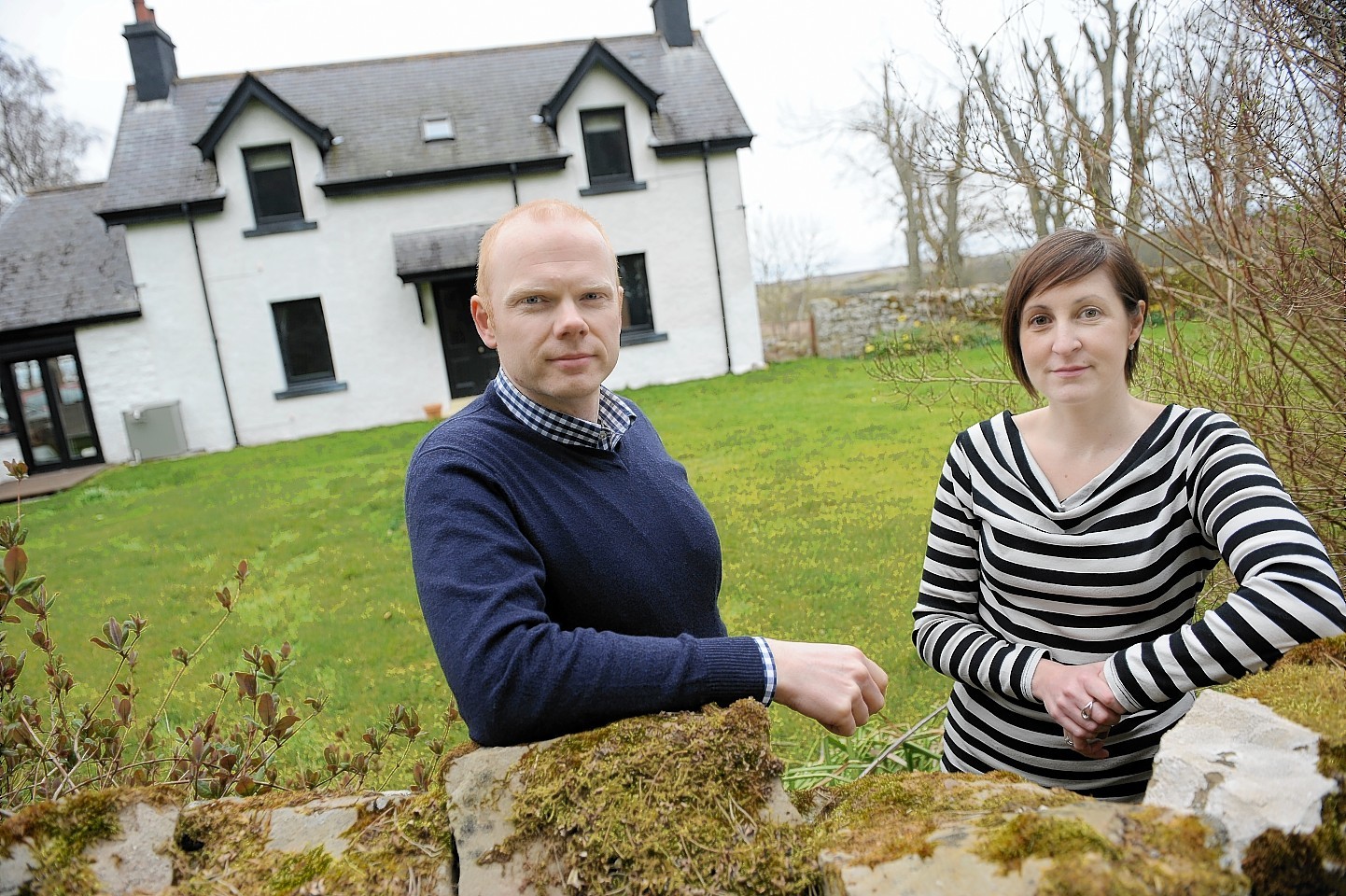A couple who moved to the Highlands to “help make a difference” in the war against cancer have been left reeling by a whopping 27% rise in their council tax bill.
Nick and Louise Bradshaw believe the massive increase is the result of a blunder – and have warned that other people could suffer the same fate.
Their annual bill has soared by £450 to £1,650 following a revaluation of their three-bedroom cottage from band C to band E.
An independent assessment for the council based the decision on “material increase in value of the house”.
The couple have lost an appeal despite arguing that alterations were made to the property in 1989 – before they lived there and prior to the introduction of the council tax.
Now Conservative MSP Mary Scanlon has taken up their case, and is calling for more information to be put on home reports about valuations.
The Bradshaws moved from Boston in Lincolnshire to Easter Ross in 2012 because of their love of the Highlands and the area’s urgent need for qualified cancer specialists.
Mrs Bradshaw, who lost her father-in-law to cancer, is a radiographer.
They claim assessors failed to follow the rules in applying the higher banding to their home – Pine Lodge on the Geanies Estate near Fearn – which they bought in the knowledge it was a band C property.
They have also questioned whether they are getting value for money from Highland Council – because they have to take their bins a mile along a dirt track to have them emptied and have no nearby pavements or street lights.
The couple began refurbishing the property cosmetically when they moved in.
Eight months on, they were informed by the region’s assessor that because the property had “materially changed” in size since the previous valuation in 1989 it had been re-graded.
The Bradshaws argued that a property could only be re-banded when being sold and lodged an appeal – but lost.
The previous owners had bought the house in 2000. The size of the property was apparently not altered between then and 2012 when the Bradshaws moved in.
But Mr Bradshaw claims assessors had no record of its sale in 2000.
He also claims there was no evidence that assessors inspected the property as part of the process.
Mr Bradshaw, who works in finance, said: “The Scottish Government recently wrote off historic (poll) tax. It now seems there’s one rule for those who pay their taxes and another for those who don’t.
“We moved up because Louise is a cancer radiographer, much in demand here.
“I lost my father to cancer and we made the move to help make a difference. We love Scotland and I was happy to pack up my own business. We ploughed everything into the move.”
Regional assessor Bill Gillies said: “This case was referred as an appeal to the valuation appeal committee for a decision. The committee are independent of both the assessor and Highland Council.
“Having heard evidence from both the assessor and the appellant, the committee found that the band allocated to the property by the assessor was correct.
“I cannot make any further comment at this time as a further appeal may be made to the Court of Session.”
But Mr Bradshaw said another challenge to the ruling was highly unlikely.
He said: “The costs are astronomical and, if we were to lose we would have to pay the assessors’ costs too.”
Mrs Scanlon said: “This highlights an issue which I am sure has been repeated across the Highlands, and indeed Scotland.
“I feel it is time to put more detail about council tax banding in the home report.
“If more information was available in the report on when a property was last revalued and when it was likely to be done again, purchasers may be spared the experience Mr and Mrs Bradshaw have had.”
